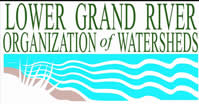Lower Grand Watershed Interactive Tool (WIT) - Wastewater Treatment

FYI on Local Water Issues
In order to keep our waterways clean and safe our wastewater must be treated and cleaned. There are several processes taken to clean our water before it is returned to our streams, rivers, and lakes. Treatment plants are point source dischargers and are heavily regulated and monitored. There are fines given out if a plant doe not meet regulations. Their own staffs as well as the State of Michigan monitor our treatment plants. The plants are responsible for collecting the waste from our homes, businesses, and public places. Then they must clean the water and then dispose of the solid wastes and the clean water. They monitor the water coming into the plants, for industrial users they do this through their Industrial Pretreatment Programs. The solids that are left over from the treatment process are either trash or debris which is taken to the landfills, or organic material that can be used as Biosolids and used on agricultural land as a fertilizer. Some organic material will not be recycled and may be disposed of in landfills.
For more information on wastewater treatment, consult the following resources:
- City of Wyoming's Clean Water Plant
- Grand Rapids Wastewater Treatment Plant Monthly Operating Reports
- About Combined Sewer Overflows and Sanitary Sewer Overflows - what are they and what you should know about them
- Biosolids - what are they, how are they made, are they safe
- Industrial Pretreatment Programs - how these point source pollutions sources are regulated and monitored
- Michigan Water Environment Association
- American Water Works Association
- Water Environment Federation
